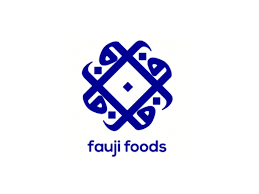Islamabad November 4 2024: The Economic Coordination Committee (ECC) of the Cabinet on Monday approved the Circular Debt Management Plan for FY 2024-25, and sale purchase agreement for Supply of POL products between Pakistan State Oil (PSO) and SOCAR Azerbaijan.
The committee met under the chairmanships of Minister for Finance and Revenue Senator Muhammad Aurangzeb, said a news release.
During the meeting, several key agenda items were discussed and decisions were made.
Ministry of Energy (Petroleum Division) presented a summary, seeking approval for the Sale Purchase Agreement (SPA) for the supply of POL products between Pakistan State Oil (PSO) and SOCAR Azerbaijan.
The committee approved the signing of the SPA.
The Ministry of Energy (Power Division) submitted the Circular Debt Management Plan for FY 2024-25.
The ECC approved the plan, which aims to reduce liabilities in the power sector and enhance financial sustainability.
The Ministry of Information and Broadcasting (MoIB) presented a summary requesting a technical supplementary grant (TSG) of Rs. 95.822 million to settle the outstanding dues related to the 23rd Shanghai Cooperation Organization’s (SCO) Council of Heads of Government (CHG) meeting.
After deliberation, the ECC directed the ministry to reappropriate the funds from its allocated budget for the fiscal year 2024-25.
In case of a shortfall of funds at the end of the fiscal year, the Finance Division will allocate a technical supplementary grant as needed.
Another request from MoIB for an additional TSG of Rs. 536.1 million for crucial digital initiatives was discussed. The ECC similarly directed the Ministry to reappropriate the required amount from its FY 2024-25 budget, with the possibility of supplementary funds being allocated later, if required.
The Ministry of Industries and Production brought forward a summary regarding the Peshawar High Court’s decision on the export of sugar from Khyber Pakhtunkhwa.
The Ministry emphasized that based on national data, the sugar production in Khyber Pakhtunkhwa is less than the province’s annual consumption of 0.979 million MT.
The local deficit is usually met by sugar supplied from surplus-producing provinces such as Punjab and Sindh. Therefore, no sugar shortage is expected in Khyber Pakhtunkhwa, even with the current and any future exports allowed by the ECC.
As a result, the ECC reiterated its earlier decision based on the provided national figures. However, the request and suggestions from the province of Khyber Pakhtunkhwa were duly noted.
The Ministry of Interior requested a TSG amounting to Rs. 650.35 million to cover costs related to the SCO Summit 2024, repairs of Safe City cameras damaged during violent protests, and maintaining law and order in Islamabad.
The ECC directed the ministry to reappropriate the funds from its allocated budget for FY 2024-25.
In another matter, the Ministry of Interior presented a summary seeking Rs. 2.70 billion spent on arrangements and beautification of Islamabad for the 23rd SCO Summit.
Following detailed discussions, the ECC decided that the Capital Development Authority (CDA) and the Ministry of Interior should get a third-party cost and expenditure verification before bringing the summary back for further consideration.
At the end of the meeting, the ECC also reviewed the situation of price hikes in Pulses (Gram and Mash) and Chicken.
The ECC showed concern upon the situation and asked NPMC to monitor the situation in consultation of Ministry of National Food Security and Research and provincial administration to provide relief to common man at the earliest.
Moreover, the ECC decided to keep reviewing the prices of essential food items in order to ensure benefits of decline in inflation may reach the common man.
The meeting was attended by Minister for Petroleum Musadik Masood Malik, Minister for Power Sardar Awais Ahmad Khan Leghari, Minister for Economic Affairs Ahad Khan Cheema, Governor, State Bank of Pakistan (SBP), Chairman SECP, Chairman, Board of Investment (BOI), Federal Secretaries, and senior officers from concerned ministries and departments.











